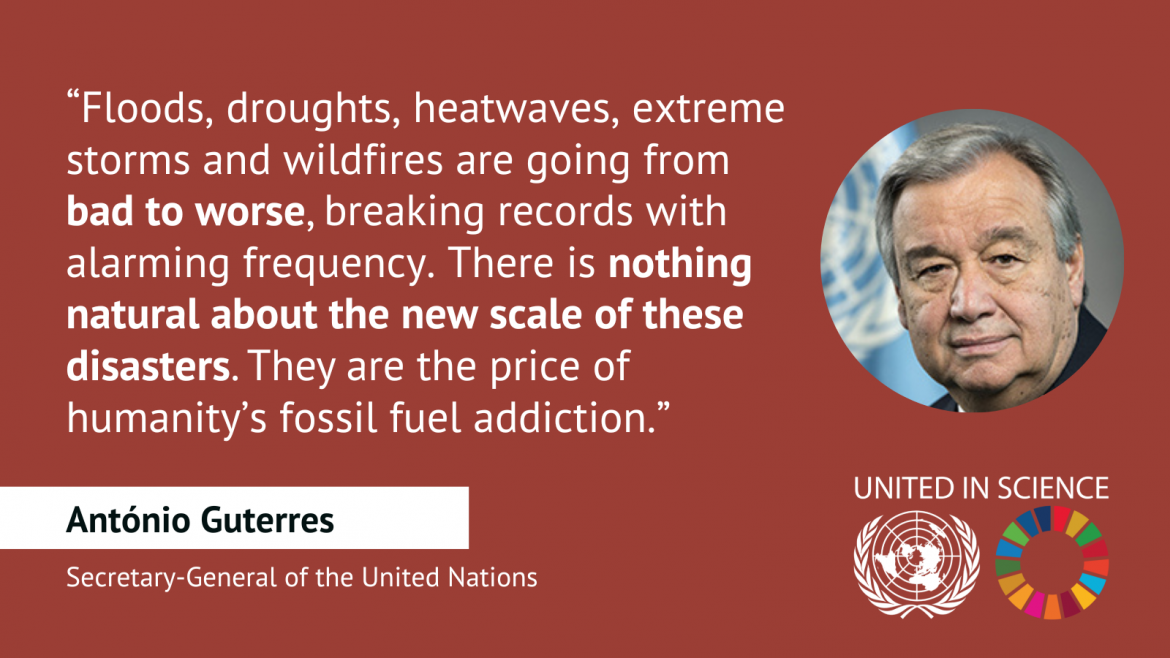The United Nations (UN) has said that the increasing dependence on fossil fuels is leading to a “new scale of disasters” across the globe.
Secretary-general of the UN, Antonio Guterres made this known on Wednesday in his reaction to a new report by the World Meteorological Organisation (WMO) which shows that the world is not on track to tackle climate change.
According to the report titled: United in Science, countries would need to pledge seven times more on emission reduction than they are already doing, to achieve 1.5 degrees.
In his reaction, Guterres said that floods, droughts, heatwaves, extreme storms and wildfires are deteriorating from bad to worse and breaking records with alarming frequency”.
“Heatwaves in Europe, colossal floods in Pakistan, prolonged and severe droughts in China, the Horn of Africa and the United States — there is nothing natural about the new scale of these disasters. They are the price of humanity’s fossil fuel addiction,” the UN chief said via a video message.
He explained that this year’s United in Science report shows climate impacts heading into the uncharted territory of destruction.
Read also: U.S. pledges $200m to tackle climate change in Nigeria
“yet, each year, we double-down on this fossil fuel addiction, even as the symptoms get rapidly worse,” he regretted.
Findings from the report further showed that greenhouse gas concentrations continue to rise even as fossil fuel emission rates are now above pre-pandemic levels after a temporary drop due to lockdowns.
It also found that the past seven years were the warmest on record and so, there is a 48 per cent chance that during at least one year in the next five years, the annual mean temperature will temporarily be 1.5°C higher than the 1850-1900 average.
WMO secretary-general, Petteri Taalas, had said that countries need to scale up actions and early warning systems to build resilience in vulnerable communities.
“Climate science is increasingly able to show that many of the extreme weather events that we are experiencing have become more likely and more intense due to human-induced climate change,” said Taalas.
Story was adapted from the cable.
